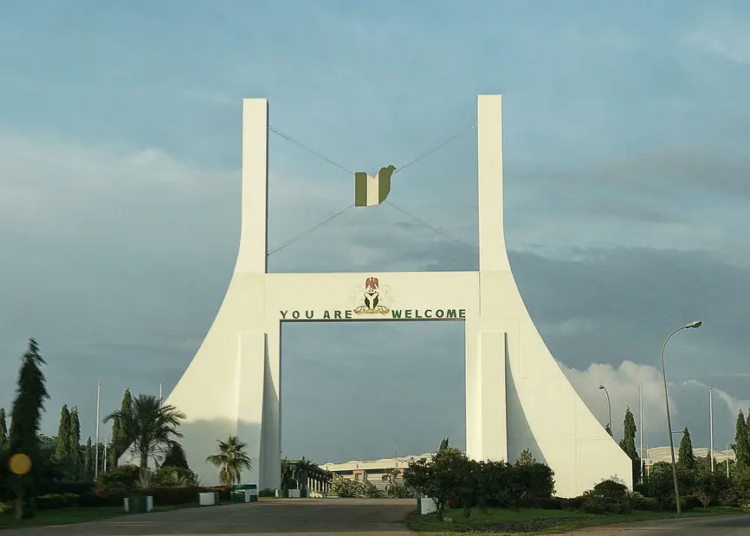Since Barrister Nyesom Wike assumed duty as the Minister of the Federal Capital Territory (FCT) in 2023, tremendous changes have taken place in the nation’s capital. Some of these changes, especially in the sphere of infrastructure development have improved the living conditions of the residents
The most significant of the transformation taking place in Abuja is the upgrade of old roads and the construction of new ones, across the length and breadth of the FCT, which have eased traffic flow and congestion in certain parts of the capital city.
In his infrastructural drive, the minister has extended development to the satellite towns and rural areas with motorable roads. These communities suffered age-long neglect by the previous administrations.
There are also actions that seem unpalatable to the residents, particularly the poor, whose abodes (shanties and illegal structures) were demolished. This particular policy, gave the critics of the administration a lee way to make not too sagacious claims such as land grabbing against the minister and his lieutenants.
The minister’s approach may not be too conventional, appealing and soothing as some people must suffer bruises for any meaningful change to occur; the message is very clear: Abuja needs to develop and somebody must do it. This is the burden and the cross Wike has decided to bear and he must be supported.
In the cause of seeking for means to generate resources to provide the basic amenities for the people of the FCT, Wike has stepped on the toes of the powerful and the rich. To them, his measures are unpopular and tough. Yes! But they have exposed how the elite disobey the laws they made for the good governance of the nation’s capital with impunity.
For instance, his publications in the media of the names of Abuja high-profile landlords, comprising serving and former leaders, corporate bodies, which have never paid ground rents, amounting to over N34 billion, remains a big embarrassment to the nouveau riche, who have carried on with the impression that they can commit murder and get away with it
To this class of Nigerians, who apparently believe that they have the FCT in their pocket and can silence or stop the minister, apparently as they had done in the past, the deadline for them to clear their debts or face the wrath of the law came as rude shock.
Records indicate that this bold step is paying off as the monthly internal revenue of the FCT has jumped from N9 billion to N25 billion. In fact, it peaked at N40 billion last December.
From ground rent collection, the battle has shifted to the recovery of about N300 billion certificate of occupancy debt owed the FCT by the landlords.
This staggering figure raises serious concerns about the accountability and responsibility of the country’s elite. A certificate of occupancy (C of O) is a crucial document that evidences the right of occupancy. That these same elite, who make the law, breach it without a second thought, points to the fact that the country’s leaders are the major problem of the FCT and the nation. This assertion is deductible from the fact that those who have been named were/are cabinet ministers, elected representatives at state and national levels, business magnates and corporate entities.
If this critical segment of the society does not pay taxes, ground rents and C of O fees, as a newspaper, we ask: Who pays? The poor!
The C of O is a document that shows that a person has received approval to use a property for its intended purpose. It is a vital document that every landowner should have, and its issuance is a significant source of revenue for the FCT.
At a recent press briefing, Wike disclosed that Abuja property owners owe over N300 billion certificates of occupancy (C of O) fees.
The minister hinted that his administration’s aggressive revenue drive increased the FCT’s monthly revenue from N9 billion when he assumed office in August 2023 to an average of N25 billion per month. According to him, the FCT netted N40 billion revenue in December 2024 alone.
He attributed the revenue surge to improved ground rent collection and payments for certificates of occupancy by land allottees.
As a newspaper, we salute the minister for his doggedness, transparent and accountable stewardship. This was never so before in the FCT.
The credit for the success of the FCT administration should also go to President Bola Ahmed Tinubu, who from all indications, has given the minister unfettered hand to do his job. This is what true governance is about.
In the light of this, we charge the minister to continue with his good work and ensure that the last kobo is collected from these high-profile individuals and organisations, who have refused to pay their debts.
This attitude of the Very Important Personalities (VIPs) is not only uncharitable but also sets a bad precedent for good governance. It is unacceptable that those who make laws and occupy positions of power can flout the rules with impunity, leaving the burden on the poor and vulnerable. The failure of these landlords to pay their debts is a clear example of the pervasive culture of impunity that plagues Nigeria.
Again, we commend the FCT minister for his boldness in publishing the names of those who owe N34 billion in ground rent, regardless of their status. This move is a step in the right direction towards ensuring accountability and transparency in the management of public resources. We urge the minister to collect every kobo owed to the FCT and to remain transparent in the conduct of public affairs.
Furthermore, we challenge the minister to remain focused and truly transform the nation’s capital. He should strive to become a reference point in governance in Nigeria, known for his transparency, accountability, and judicious use of public resources.
We are persuaded to posit that the N300 billion certificate of occupancy debt owed to the FCT is a serious issue that requires urgent attention. We urge the FCT minister to take all necessary steps to recover the debt and to ensure that those involved are held accountable. Anything less would be a disservice to the people of Nigeria.
We insist that the collection of this debt is a matter of fairness and equity. The FCT has provided infrastructure, services, and amenities to support the development of the capital city, and it is only reasonable that those who have benefitted from these huge investments contribute their fair share. By collecting the C of O debt, the FCT can ensure that the costs of development are shared equitably among all stakeholders.
Second, the collection of this debt is essential for the FCT’s financial sustainability. The N300 billion owed to the FCT is a significant amount that can be used to fund critical infrastructure, provide essential services, and support the overall development of the capital city. By collecting this debt, the FCT can reduce its financial burden, improve its fiscal discipline, and enhance its ability to deliver quality services to residents.
Third, the collection of this debt will send a serious message about accountability and the rule of law: Nobody is above the law.
In the meantime, the collection of the debt is a moral imperative because it promotes social justice and equality. The FCT’s decision to collect the C of O debt ensures that the wealthy and powerful are held accountable for their obligations, just like ordinary citizens. This move will help to promote a sense of fairness and justice, and reinforces the principle that everyone is equal before the law.





